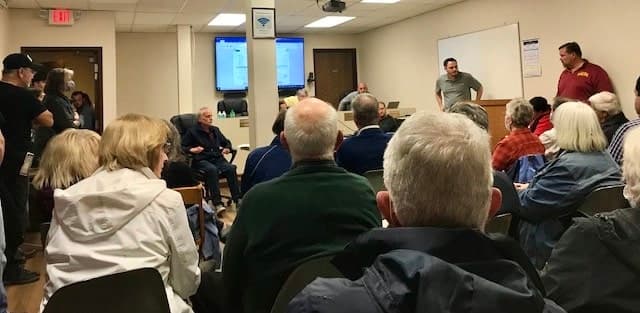Hudson Valley Representative Seeks Input on Rising Grocery Costs
On November 24 Congressman Pat Ryan released a constituent survey asking Hudson Valley families how rising grocery prices have affected their households as he advances the bipartisan Lower Grocery Prices Act. Local responses could influence federal analysis and potential policy steps that would address grocery inflation and its impact on Orange County budgets.

On November 24 Congressman Pat Ryan asked residents across the Hudson Valley to report how they were being affected by higher grocery prices as he continued to press the bipartisan Lower Grocery Prices Act. The survey was released ahead of the Thanksgiving holiday and seeks constituent examples of how food costs are affecting family budgets and small businesses in the region. The questionnaire is available at https://shorturl.at/grOv3.
Ryan introduced the legislation after a March 2024 Federal Trade Commission report found that large grocery companies increased prices and expanded profit margins during the high price environment that followed the pandemic. The bill would require the federal government to analyze grocery cost trends over the past 20 years and to develop a comprehensive national plan to lower grocery prices. That statutory requirement of a long term review is intended to move the conversation from episodic fixes toward coordinated policy recommendations.
For Orange County residents the issue is immediate. Grocery bills are a recurring household expense that can squeeze other spending and savings, especially during the holiday season when families prepare larger meals. A federal analysis could lead to a range of policy options, from enhanced market monitoring by regulators to targeted legislation aimed at pricing practices in concentrated retail markets. Because grocery spending cuts across income levels and communities, evidence produced by the mandated review could be politically salient across party lines.

Institutionally the proposal would lean on agencies such as the FTC and potentially the Department of Justice to compile data and recommend remedies, increasing interagency coordination. The bill’s bipartisan label may improve its prospects for hearings and consideration, but passage would require lawmakers to agree on the scope of remedies and on regulatory roles. For civic engagement the congressman’s survey represents a concrete moment for constituents to shape the record that lawmakers and agencies would use when crafting policy.
Ryan introduced the legislation prior to the survey release, and the questionnaire will inform his ongoing advocacy. Responses from Orange County households and small business owners could influence the specifics of proposed solutions and the legislative path forward.


